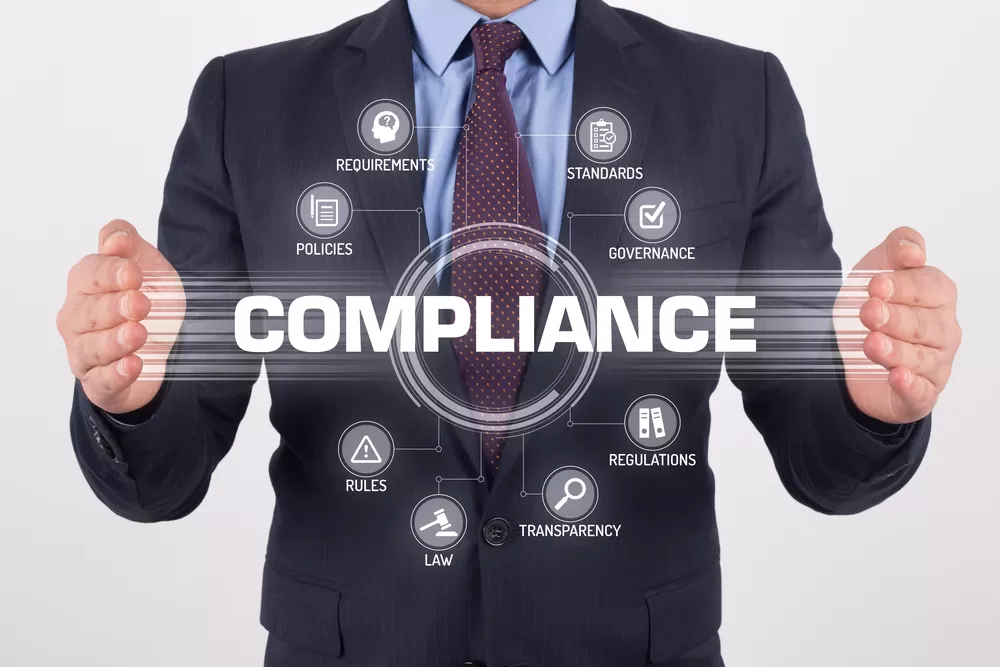In the famous words of Benjamin Franklin, nothing is certain except for death and taxes. Filing taxes can be a major headache for your HR department. There are different tax laws at different levels, including local, state, national, and even international tax laws, depending on the size of the company and where it operates. HR tax software can help companies stay compliant with tax laws, especially as they change.
What is Tax Compliance?
Tax compliance is the act of following the local, state, federal, and international tax laws. It involves being aware of the different tax laws that apply to the company and ensuring that the company files taxes correctly in accordance with these laws. Failure to comply with tax laws can result in fines or other penalties.
On top of income tax, businesses have additional taxes they must pay:
- Property taxes
- Sales tax
- Payroll/employment taxes
- Excise and other administrative taxes
- Franchise taxes (in some states)
- Dividends taxes
Common Payroll and Tax Challenges
Taxes can be complicated, especially for businesses. With so many different types of taxes at each level of government, it can be difficult to keep track of them all. This is especially so when tax laws change. This means that taxes and payroll can pose common challenges for all businesses, no matter how big or small.
Late Payroll Taxes
Payroll taxes are owed monthly, due by the 15th of the month. If these aren’t paid on time, the company will incur a penalty, typically a fine of 0.5% of the taxes that are due for that month. If taxes are extremely late, then that fee can climb as high as 25%. It’s important, therefore, to make sure that payroll tax deposits are made in a timely manner.
Failure to Provide IRS Form 1099
IRS Form 1099 is the tax form used by independent contractors or outside companies. For each independent contractor that is paid $600 or more per year, companies are required to issue a 1099 form to both the independent contractor and to the IRS. There’s a fee of $75 per 1099 form that isn’t issued.
Failure to Pay Federal Taxes
All businesses are required to withhold income tax from their employees’ paychecks and then pay that money to the IRS. These withholdings are also to cover Social Security taxes and Medicare taxes. Companies that fail to withhold these taxes may be fined. If a company withholds the taxes but then doesn’t actually pay them to the IRS, the person responsible could see jail time.
Impact of Payroll and Tax Mistakes
It’s vital for businesses to ensure that payroll and taxes are done properly because mistakes can cost the company a lot of money. If taxes are late or aren’t done properly, the company can be fined a lot of money. Certain tax mistakes could see jail time for those responsible for making them. Typically punishment for tax mistakes are monetary penalties rather than jail time, but if taxes are withheld from employee paychecks but not paid to the IRS, that can result in the person or people responsible being held criminally liable.
Benefits of Using a HRIS for Tax Compliance
Using a top HRIS system can make the process of filing taxes much easier. Not only can it help reduce errors, but it can also help ensure that taxes are compliant with any changes that have been made to tax laws. Plus, a HRIS can help make sure that a company meets all required tax deadlines.
Automation
Automating much of the tax filing process can reduce the possibility of errors. It can also free up your staff’s time by eliminating the need to manually enter information. A HRIS can automate tax forms such as W-2s, W-9s, 1099s, and more.
Automating employee records, benefits, timesheets, and payroll can ensure accuracy that will make the tax filing process faster and easier.
Records
According to U.S. federal law, companies are required to keep records regarding employee tax returns and salaries, unemployment, overtime, and more.
The most important laws are:
- Federal Insurance Contributions Act
- Fair Labor Standards Act
- Consumer Credit Protection Act
- Federal Unemployment Tax Act
Depending on your company’s location, there may be additional requirements based on state or local laws. If your company has business internationally, there may also be international laws you must comply with.
A HRIS can help your HR department keep track of the legislation that affects your company. All records can be kept in one secure place for easy access. Your records can also be easily submitted if they’re kept digitally, which also reduces paper usage.
Accuracy
Accuracy is vital to tax compliance. Automation can reduce the opportunities for human error, but it’s also important to ensure that all data entered into the HRIS is as accurate as possible. A HRIS allows employees access to their own records without involving HR. This means that employees can verify the accuracy of their data, check their own, update information that has changed, and view pay stubs without involving HR staff.
Scheduling
Because there are different kinds of payroll taxes, knowing when to pay what tax is important for tax compliance. A HRIS can send reminders to your HR staff when it’s time to make payments and keep track of what amount needs to be paid when and to whom.
Filing Taxes
A HRIS can help your HR staff file taxes. HR software can prepare the taxes and calculate the correct amount of withholdings for your employees. Scheduling and automated payment features can also help ensure that deadlines are never missed.
How to Choose the Right HR Software
It’s important for a HRIS to handle any tax issues that your HR staff will face. Your HRIS should include tax compliance software that can help you ensure that you’re compliant with all tax laws. What features should you look for in a HRIS?
Sales Tax Calculation
Tax compliance software should be able to calculate sales tax and any VAT (value-added tax) for any products and services sold. Sales tax may differ depending on the location and software can help ensure that tax is calculated correctly across the board. This is especially important for companies selling online or in multiple locations because local laws and regulations can differ.
Tax Filing
Your HRIS should be able to assist with the tax filing process. This includes providing the necessary forms for you to fill out, including 1099 forms for independent contractors. The software can also remind you that tax deadlines are coming up so that taxes are filed on time in order to avoid incurring penalties.
Tax Exemption Processing
There may be times when certain transactions are exempt from taxes. The software should be able to handle processing and managing tax exemptions in addition to calculating different taxes. The system should also be able to store exemption certificates in an easily searchable way.
Tax Analytics
A HRIS should have the ability to analyze the data that is input into the system. This analysis can help spot any patterns that may need to be addressed. The system can then use that data to generate reports.
Is your company looking for a HRIS software to manage tax compliance? Let us match you with the right software for your business’ needs. Visit our Software Match page to get started.












